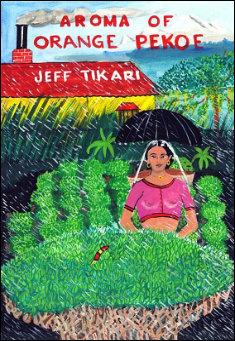The life and living; the entertaining and ways of Tea Planters who made a living in those remote plantations of north-east India in the 1950s. Scots, Brits, and Indians lived in a cohesive society mostly cut off from the rest of the world. They built their own clubs where they danced and entertained; played indoor and outdoor games; drank and lived a rugged life - hunting, fishing and trekking. These are stories, snippets from the day to day life of tea and coffee planters. They are mainly my stories – I spent thirty three years serving in tea and coffee plantations in India and Papua New Guinea: from 1959 to 1992. I say mainly my stories because I have also included amusing stories told at the bar in tea clubs, usually late at night, with slurred words, halting speech, and good humor – a close and genial time when the true character of a tale is revealed.Planters lived a simple life and so the stories are simple and from the heart.
Excerpt:
Planters lived a simple life and so the stories are simple and from the heart. They lived a hard life which too is revealed in the telling. They made their own entertainment – cut off and living in far flung estates in large plantation bungalows staffed with a retinue of servants – no TVs only radios with weak signals over-laden with static; they entertained and kept sane by visiting, partying, and dancing. “Some nights I rode to the club,” said Ome Anand, “the advantage being that if I got too sozzled I lay on the neck of my horse that unerringly, got me home.” Furtive, short, love affairs blossomed here and there – with a ground swell of well healed, healthy, young bachelors, it was only but inevitable.
Hunting was taken up by many and tennis, cricket, football, etc. was played by all. Managers insisted that youngsters visit the club and play games, “Keeps them out of mischief,” they said. Young Assistant Managers were not allowed to marry during their first tenure (usually three years) and so formed strong friendships, visiting each other regularly. Club nights were very popular and allowed an outlet to the loneliness of living by ones self.
A good salary, generous accommodation including extensive flower and vegetable gardens, with a number of servants thrown in made an ideal situation where a young executive might like to bring home a bride. Not being allowed to marry during the first tenure turned some into keen hunters, sportsmen, and keener club revelers; others, to escape the loneliness of living alone, had women visiting; and whilst some temporarily kept ‘garden women’, others retained their women for years, and still some married them – especially when children were born.
Dr Graham’s School in Kalimpong (India) is an excellent establishment that, in those days, looked after ex-pat planters’ children that were either born out of wedlock or children that were adopted, as well as children of expat planters. The medium of instruction was English and most children who graduated from this excellent institute have done well in life.
In the spring of 1977 I traveled by Air India to Sydney – to the Company headquarters of tea and coffee plantations in the Highlands of Papua New Guinea where I was seeking a position. I was interviewed by the Managing Director in Sydney to ascertain my suitability for the job. Steven Rich was a busy Director and was at a Board Meeting when I arrived at the appointed hour. On being told of my arrival he rushed out and shook my hand. Australians, generally dress more casually than their British counterparts…Steven was dressed in jeans and matching jacket. I, being brought up more formally, wore a three piece suit. I think, in his mind Steven had allotted five minutes for the interview, at the end of which I could sense I had made a favourable impression.














